#contemporary cinema
Text
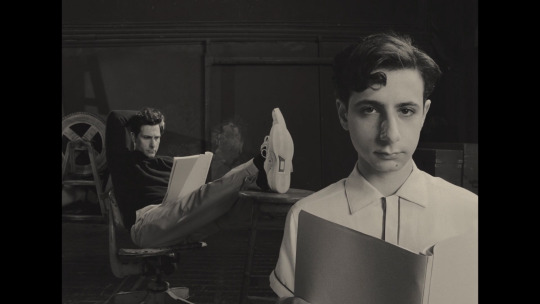

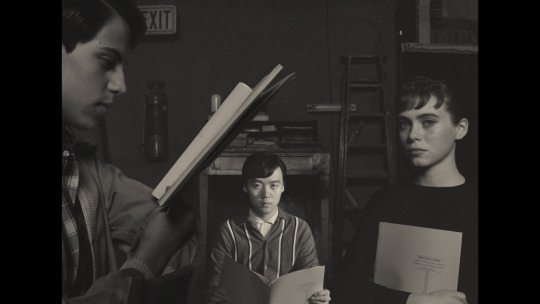
Asteroid City (2023)
dir.: Wes Anderson
dop.: Robert Yeoman
#filmstills#film stills#wes anderson#robert yeoman#jason schwartzman#jeffrey wright#sophia lillis#american cinema#contemporary cinema#asteroid city#bnw#portrait#jake ryan
15 notes
·
View notes
Text
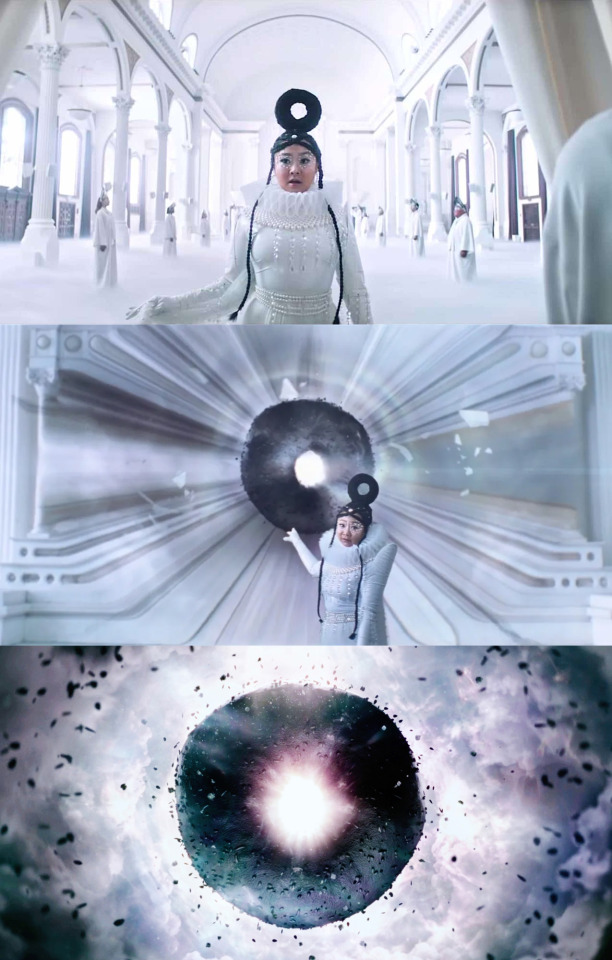
Everything Everywhere All at Once, 2022 - dir. Dan Kwan und Daniel Scheinert
This is quite possibly the best film I've watched released in the past 10 years. I have yet to ever see a more well-timed and opportune piece of work defying one of the biggest contemporary issues and one of the biggest traits of this generation: nihilism. Not only does it reject cynicism, it refutes it soundly.
This is a film that embraces the sheer meaninglessness of human existence using absurdism as a medium to show that if nothing matters, then the only thing that can matter is what you choose, because you are free to make your life mean anything and everything you wish.
The directors achieved a magnificent, surrealistic collage of elements from nearly all forms of cinema and used it to convey an exploration of multiverses. It doesn't intend to be a blockbuster, quite the contrary, it uses blockbusters as a medium of artistic expression.
#everything everywhere all at once#the daniels#contemporary cinema#art house cinema#avant garde cinema#movie scenes#cinematography#filmmaker#director#cinema
215 notes
·
View notes
Text

Past Lives (Celine Song, 2023)
#Past Lives#Celine Song#American movies#romantic drama film#Greta Lee#Teo Yoo#John Magaro#childhood#friends#friendship#relationship#South Korea#Far East#Asia#USA#Seoul#love#Toronto#New York City#Montauk#green card#Korean#memories#immigrant story#Canada#contemporary cinema#2020s movies#nostalgia#jealousy#lovers
5 notes
·
View notes
Photo

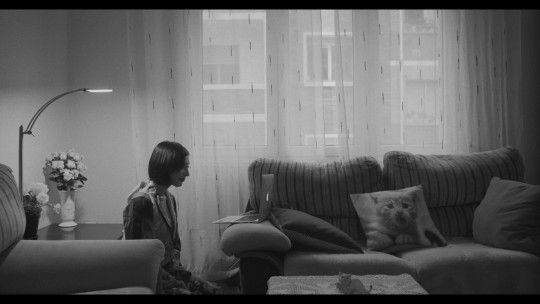
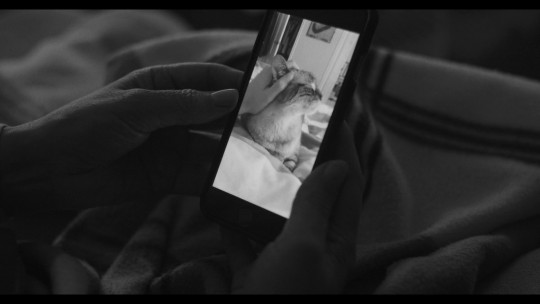
El Planeta (Amalia Ulman, 2021)
42 notes
·
View notes
Photo

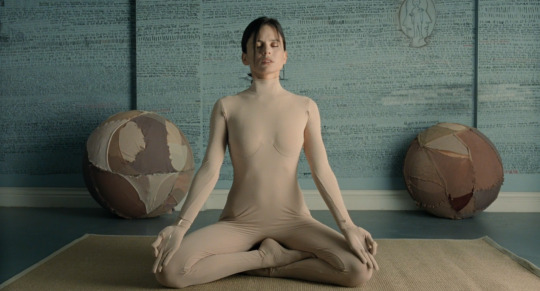

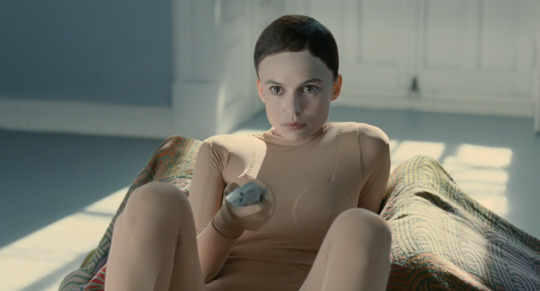
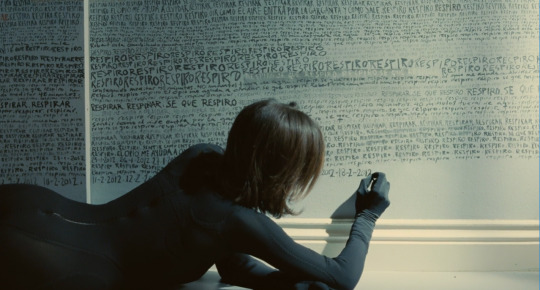

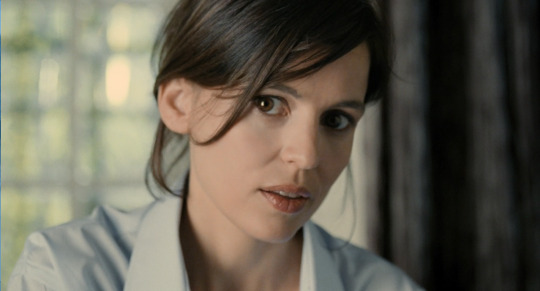

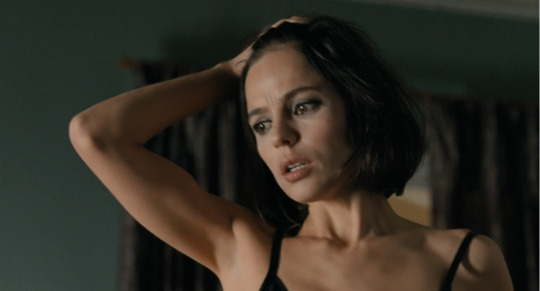

Den Film 'Die Haut, in der ich wohne' (Originaltitel: La piel que habito) hab’ ich zwei Mal im Leben geschaut.
Als ich in der High School war, las ich das Buch 'Tarantula' von Thierry Jonquet. Der berühmte spanische Regisseur Pedro Almodóvar drehte daraufhin seinen Film nach diesem Buch und brachte ihn nach Cannes.
Das Buch und der Film unterscheiden sich leicht voneinander.
Es ist eine sehr gewalttätige Geschichte, die in unserer Realität kaum möglich ist. So denke ich zumindest.
Die Handlung ist sehr einfach: Ein Vater rächt sich an dem Vergewaltiger seiner Tochter. Die Umstände, unter denen er dies tut, sind jedoch nicht ganz trivial. Da er ein genialer plastischer Chirurg ist, verwandelt er den Vergewaltiger in eine Frau. O_O Die Frau ist so gut und schön geworden, dass der Chirurg sich selbst in sie verliebt. Es ist wie der antike Mythos des Bildhauers Pygmalion.
Ich hab’ mir 2011 den Film angeschaut und das Buch gelesen. Beide Versionen der gleichen Geschichte haben mir echt gut gefallen.
Am meisten gefällt mir aber die Problemstellung, die nicht alltäglich ist.
Es gibt keinen einzigen positiven Charakter. Alle verdienen einander.
Der Film ist sehr offen und blutig, trotzdem ist er sehr schön gefilmt.
Und ehrlich zu sein, die schockierenden Details der ausgeklügelten Rachemethode einen beim Zusehen erschaudern lassen können.
Die Moral der Geschichte: Rache erzeugt Rache. Und die Bestrafung der Schuldigen sollte immer der Gerechtigkeit überlassen werden.
Antonio Banderas spielt die Hauptrolle in dem Film. Ich bin kein Fan von ihm. Jedoch finde ich den Mann einen sehr tollen Schauspieler.
Die Hauptfigur, die von einer spanischen Schauspielerin Elena Anaya gespielt wurde, zu beobachten, war eigentlich etwas Besonderes.
Meine subjektive Wahrnehmung😅
#pedro almodóvar#the skin i live in#Antonio Banderas#Elena Anaya#sexuelity#plastic surgeon#captor#captive#violence#suspense#thriller#bizarre#body horror#Hitchcock#Franju#Buñuel#surrealism#Open Your Eyes#contemporary cinema#Tarantula#Thierry Jonquet#Love Among the Ruins#Richard Lafargue#La piel que habito#Cannes Film Festival#passionate#Hitchcockian#visual effect#obsession#gender
30 notes
·
View notes
Text
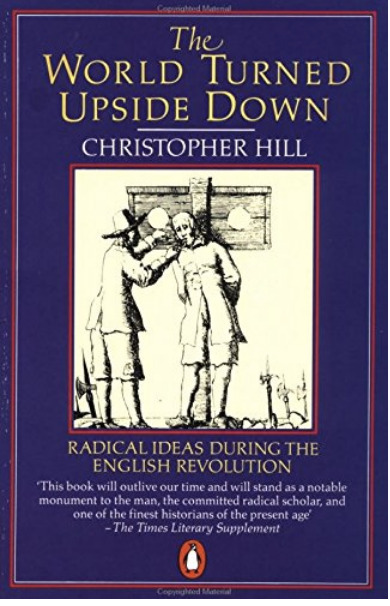
Christopher Hill's 'The World Turned Upside Down: Radical Ideas During the English Revolution', first published 1972 (Viking Press).
In 'The World Turned Upside Down' Christopher Hill studies the beliefs of such radical groups as the Diggers, the Ranters, the Levellers and others, and the social and emotional impulses that gave rise to them. The relations between rich and poor classes, the part played by wandering 'masterless' men, the outbursts of sexual freedom, the great imaginative creations of Milton and Bunyan - these and many other elements build up into a marvellously detailed and coherent portrait of this strange, sudden effusion of revolutionary beliefs. (Penguin, 2020)
On Hill:
Christopher Hill was born John Edward Christopher Hill in York, England on February 6, 1912. He attended Balliol College, Oxford University and later became the master of the college from 1965 until his retirement in 1978. In 1940, he was commissioned as a lieutenant in the Oxford and Bucks Light Infantry, before becoming a major in the intelligence corps in the Foreign Office from 1943 until the end of World War II. He was a Marxist historian whose work examined the role of economic factors in the events of 17th-century England. His works included The English Revolution 1640, Intellectual Origins of the English Revolution, God's Englishman, Reformation to Industrial Revolution, AntiChrist in 17th-Century England, Milton and the English Revolution, The World of the Muggletonians, The Experience of Defeat, and Liberty Against the Law. He died on February 23, 2003 at the age of 91. (Google Books, nd)
[I'm not able to link the pdf of the text here, but it is available in my sweeties document or through careful googling]
I found out about this through Georgie Carr's brilliant writing on 'Triangle of Sadness'.
"On one level, Östlund seems to posit a direct relationship between an excess of vomit and an intensity of critique. In contrast to the radical tradition of “the world turned upside down,” which aims to write a new history from below, Östlund instead renders society merrily askew." (Carr, 2022)
I abandoned this film in favour of spending time tickling my lover's arsehole in their sleep and couldn't dream of articulating my thoughts on the film as well as Carr does.
I could say: Östlund has created a work that nudges at style, substance, and box-office sales, but manages to rock the boat only in his definition of the word 'satire'.
But why bother? Here is Carr's article:
#christopher hill#georgie carr#another gaze#contemporary cinema#british cinema#swedish cinema#Ruben Östlund#cinema essay#british history#british politics#the world turned upside down#the diggers#the ranters#the levellers#radical politics#to read#politics resource#history resource
2 notes
·
View notes
Text
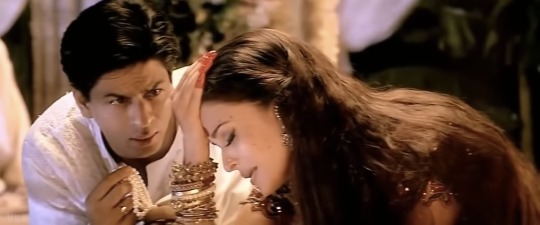
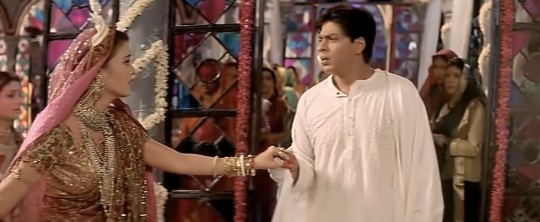
“जो दाग तुमने मुझको दिया उस दाग से मेरा चेहरा खिला रखूँगी इसको निशानी बना कर माथे पे इसको हमेशा सजाकर
ओ प्रीतम ओ प्रीतम बिन तेरे मेरे इस जीवन में कुछ भी नहीं नहीं नहीं नहीं नहीं”
“Devdas(2002)”, directed by Sanjay Leela Bhansali | Song by Kavita Krishnamurthy and Udit Narayan
#art#artists on tumblr#art parallels#cinema#contemporary cinema#devdas#sanjay leela bhansali#aishwarya rai#shah rukh khan#srk#indian cinema
51 notes
·
View notes
Text
Those Who Wish Me Dead" (2021): A Solid Piece of Action Entertainment That Needed Room to Breathe
“Those Who Wish Me Dead” (2021), directed by Taylor Sheridan, now streaming on Netflix, captures the essence of late 90s and early 2000s blockbuster films. The movie blends frenetic action with a storyline that hints at a more intricate novelistic origin, introducing us to young Connor, portrayed by Finn Little, who finds himself in perilous circumstances. His journey intertwines with that of…
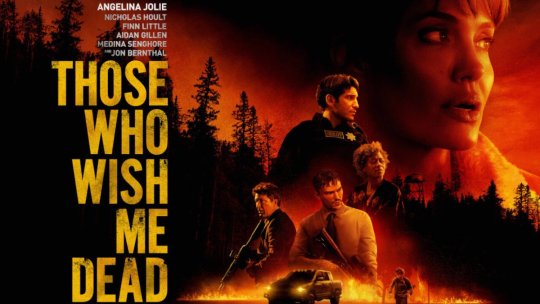
View On WordPress
#Action Film#adaptation#Aidan Gillen#Angelina Jolie#Blockbuster#Character Development#Cinematography#Contemporary Cinema#drama#Emotional Depth#Film Analysis#film review#Finn Little#Forest Fire#John Bernthal#Movie Critique#Nature vs Man#netflix#Smokejumper#Survival#suspense#Taylor Sheridan#Thriller
1 note
·
View note
Text
Movie Analysis and Review: "The Lobster" (2015)
Synopsis:In a dystopian society, single individuals must enter into a romantic relationship within a strict 45-day time limit or face transformation into an animal of their choice.
Key Themes:The central theme revolves around love and fear, exploring the characters’ fears associated with loneliness. In Yorgos Lanthimos’ world, characters grapple with the daunting task of determining their true…

View On WordPress
#Absurdist Comedy#Character Exploration#Cinematic Brilliance.#Cinematic Storytelling#Classical Soundtrack#Conformity#Contemporary Cinema#Dark Humor#Dystopian Society#Farid M. H. Sadeqi#Farid Sadeqi#Film Critique#Film Review#Hosein Tolisso#Love and Fear#Mohammad Hosein Sadeqi#Movie Analysis#Open-Ended Conclusion#Relationship Dynamics#Satire#Societal Norms#Surreal Cinematography#Thought-Provoking#Transformation#Yorgos Lanthimos
1 note
·
View note
Text


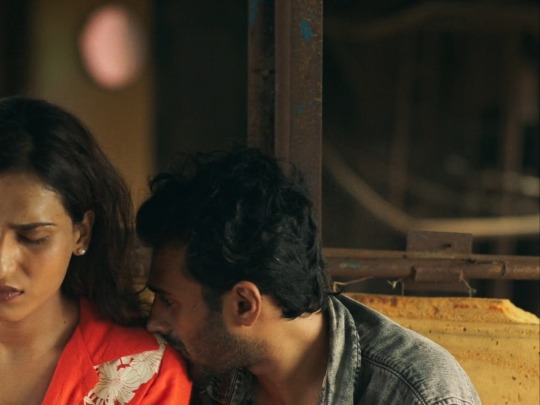
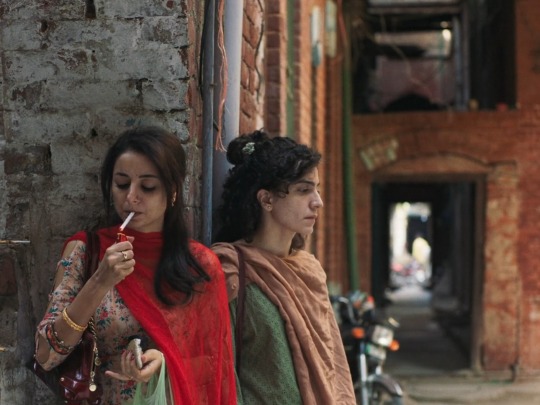
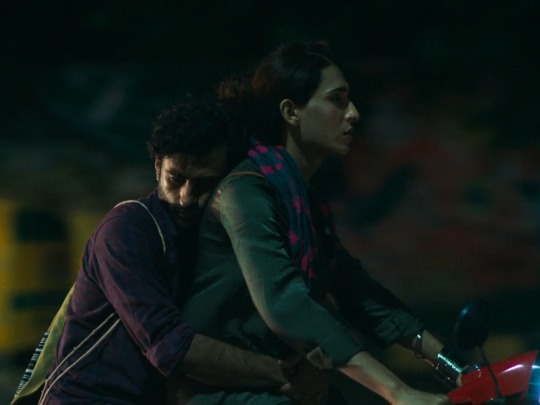

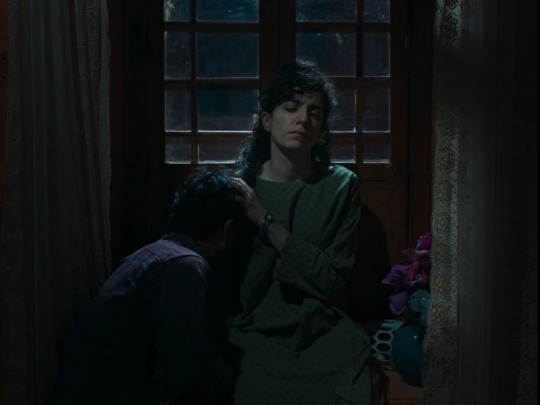


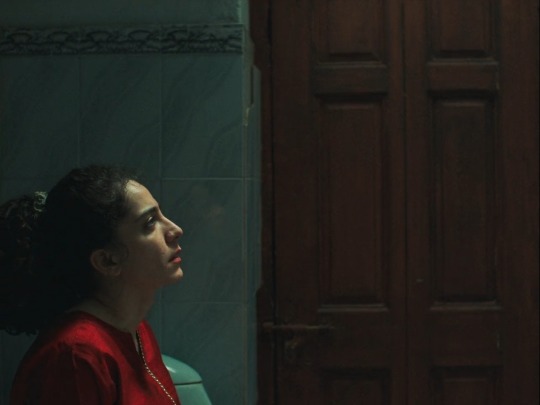
Stills from Joyland (2022), dir. Saim Sadiq
[3/4]
0 notes
Text

Milla Jovovich in Resident Evil, 2002
#resident evil#00s#cinema#movies#horror#re#milla jovovich#fashion#y2k#art#photography#portrait#aesthetic#contemporary art#architecture#couture#haute couture
2K notes
·
View notes
Text




Forough Farrokhzad poetry for today
#persian literature#persian poetry#iranian cinema#modern poetry#forough farrokhzad#mahmoud darwish#foreign languages#poetry by women#poems by women#writers of color#web weaving#text post#contemporary literature#litblr#contemporary poetry#sylvia plath#joan didion#virginia woolf#farsi
70 notes
·
View notes
Text
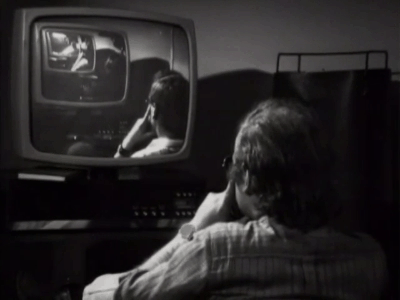
The Endless Sandwich (1972) - dir. Peter Weibel
#peter weibel#television broadcast#film#cinema#experimental short#experimental film#movie scenes#fluxus#contemporary art#movie gifs#film gifs
77 notes
·
View notes
Text
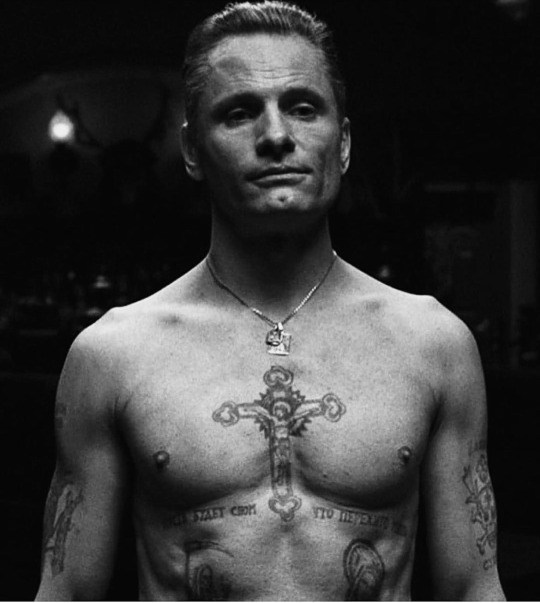
viggo mortensen in "Eastern Promises" (2007)
#viggo mortensen#actors#men#famous#tattoos#ink#grunge#alternative#photography#bw photography#cinematography#cinema#movies#film#q#art#contemporary art#culture#fashion#aesthetic#my post#1999eyez
21 notes
·
View notes
Text

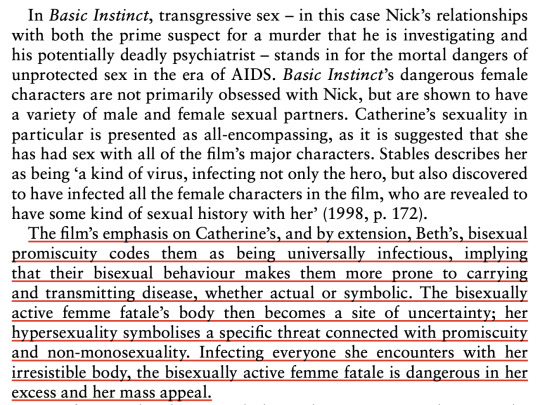
The Contemporary Femme Fatale: Gender, Genre, and American Cinema (ed. Katherine Farrimond, p. 105-6)
#the contemporary femme fatale: gender genre and american cinema#basic instinct#upl#just some reads as of late...there's a really interesting analysis of bound in here if anyone's interested but I'm still marinating on it#loved reading this though. on a neo noir kick AND been feeling like a contagion lately so just what the doctor ordered mwah
9 notes
·
View notes
Text
The Korean Quentin Tarantino: when gruesome cathartic violence scenes don't exist for the sake of being without reason
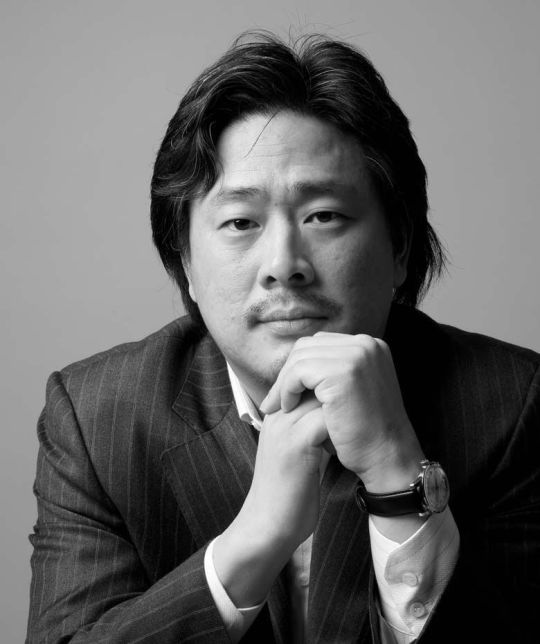
Park Chan-wook is one of South Korea's most celebrated filmmakers, who’s put Korean cinema on the map.
The filmmaker carries the status of elder brother for this generation of film lovers who rose into the mainstream of the Korean film industry beginning in the 2000s. The director, a late bloomer who made only two films in the 1990s while simultaneously working as a critic, has constructed his very own world, combining the uncompromising directorial character of a B-movie with an elliptical and poetic style that can appeal to the sensibilities of the post-MTV generation, while unafraid to draw upon genre conventions and star image. The dizzying critical and commercial success he achieved in the 2000s indicates an important characteristic of modem Korean film: while putting forward a plot and style that is goal-oriented to all outward appearance, PARK includes conclusions in his films that ultimately carry both character and audience to a point where the goals have disintegrated and represent an expression of his artistic intent to present the face of a complex society, which does not permit the route of a straightforward plot.
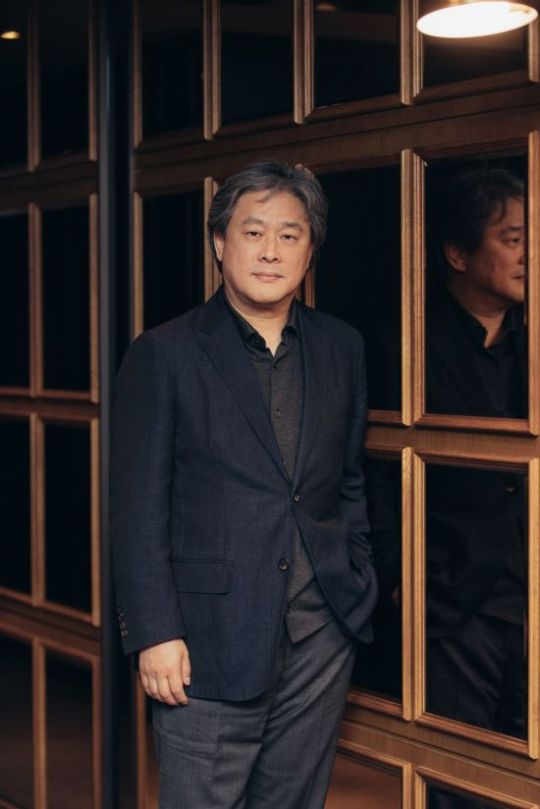
Most of the films he has made in the 2000s have seen considerable success at the box office. This fact is a notable cultural phenomenon, one that has crossed the boundaries of contemporary Korean cinema and drawn a universally favorable response mainly through Western film festivals. While eliciting conflicting emotions, where many people are fascinated and yet disturbed by his films, Park repeatedly experiments with content and style that pushes the irony of negativity to its very limit. The feeling of existential crisis within the human beings living in this society is realized through various divergent genres and themes and in completely different forms.

Park wants to have it written on his future tombstone that he was 'a director who consistently and prolifically made new films that were completely different from his older ones.' The lack of agreement or harmony that reaps the effects of bold, close-up images draw strong audience empathy while willingly and repeatedly experimenting with ellipsis and jumps in narrative and style. In this cinematic world Park Chan-wook charges his films with unconventional energy. This is the strength that makes it possible to always view his films in the present tense.

"... I find it quite interesting and bewildering to find that in my inner self there's sometimes this desire for vengeance along with feelings of jealousy and other negative emotions. This makes me interested in how this could be and perhaps this is why I'm making films that examine this phenomenon ... I'm only making a film that is only ugly and disgusting because of the story. ... It's only when the film is beautiful that I'm able to attract attention to the subject in a serious way ... When something so dark is depicted in such a beautiful way, that's when you have irony and that's when you're able to reveal and deal with the complexities of the human nature or condition."
“Living without hate for people is almost impossible. There is nothing wrong with fantasizing about revenge. You can have that feeling. You just shouldn’t act in it.”
“I have principles and rules. I deal very carefully with acts of violence and make sure that audiences understand how much suffering these acts cause. ”
“In our lives, we have good things and bad things, happiness and pain. Life is full of pain and happiness and that's what I wanted to show.”
Source: Korean Film Directors: Park Chan-Wook by Kim Young-Jin, 2007, that Shelf.com, cine21.com
#cinema#Korean cinema#korean film director#park chan-wook#vengeance#violence#human#irony#suffering#jealousy#negativity#modem cinema#contemporary cinema#cinematic#harmony#korea#revenge#tarantino
0 notes